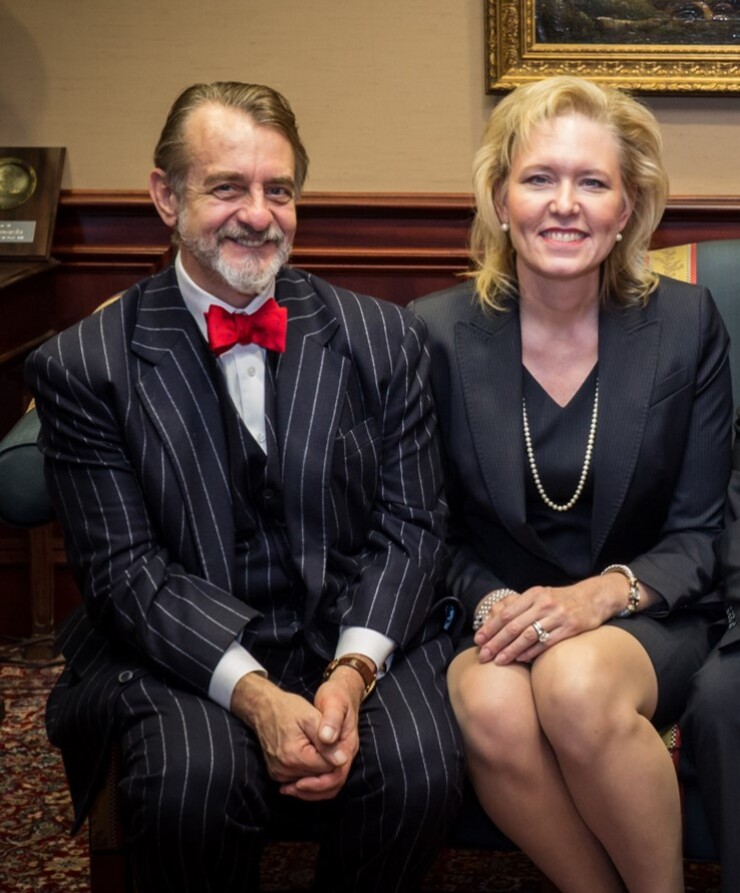The last lawsuit that the CFP Board may ever face could either come to a rapid end or continue on appeal following a hearing today.
The case being heard at a Washington appeals court – brought by husband-and-wife CFPs who contend they were disciplined unfairly – is of heightened importance given that the public may never again have a similar window into the board's inner workings.

Both sides argued today about whether the appeal should continue. Another federal judge
Read more:
Going forward, the board made it
The pending court
'CFPs SHOULD BE AFRAID'
"I think that CFPs should be afraid of unchecked disciplinary actions that could be taken against them, or unchecked policies and procedures that they didn't sign up for," says Sharron Ash, chief litigation officer at the Hamburger Law Firm in Englewood, New Jersey, who regularly represents planners against the board. "Advisers typically don't have any idea what it means to be a member of this club."
-
The public has a right to review the board’s documents, husband-and-wife planners Jeffrey and Kimberly Camarda say.
September 7 -
A court will soon decide if an appeal by Jeffrey and Kimberly Camarda, who allege mistreatment by the professional organization, can move forward.
June 22 -
After taking away CFPs' right to sue the board, it makes two concessions to critics. Still, the process points to governance problems at the board, Michael Kitces says.
August 15
CFPs need to understand that holding the certification "carries with it a pretty dark underbelly," Ash adds. "You can end up fighting against the very flag you thought you were carrying."
In a break from past practice, the board did not seek input from CFPs regarding the new rule. In response to complaints, it later
For its part, the board says in a statement: “The court’s decision to dismiss the lawsuit, and the decision to select arbitration as the forum for what amounts to a fourth level of review of a CFP professional’s conduct, are good decisions for CFP professionals, CFP certification and members of the public.” The board “enforces its standards of professional conduct through a peer-review disciplinary process that has served the public – and the CFP professional community – for decades.”
As the board has grown larger and more powerful, it has sought
"It is a club. It's a fraternity," Ash says of the board. "And it's not accountable." In its court filings, the board likened itself to a sorority in one precedent cited in its case.
The CFP Board has spent $60 million over the past seven years advertising the CFP brand to the public. Hundreds of colleges and universities offer courses to prepare would-be planners to pass the board's test. As its influence has grown so have its numbers. As of this week, the board said there were 75,000 dues-paying CFPs.
WHO EXACTLY IS FEE-ONLY?
In the current court case, planners Jeffrey and Kimberly Camarda, of Fleming Island, Florida, sued the board three years ago to stop it from publicly sanctioning them for calling their practice fee-only when the couple also ran a small insurance agency. Among many clients and prospects, fee-only is seen as an advantageous term since it supposedly excludes advisers who earn commissions from putting clients into particular investments.
While the board targeted the Camardas, however, it
A federal judge
In its statement, the board argues: “It is wrong to suggest that the decision places [the] CFP Board above the law. Courts do not place private organizations above the law; rather, they recognize situations where it makes no sense for them to second-guess decisions made by an organization through a fair process. … There also is no reason to believe that a judge who is not a CFP professional is better able to interpret [the] CFP Board’s rules and evaluate the evidence than the several groups of CFP professionals, and members of the public, who do so as part of CFP Board’s disciplinary process. Furthermore, it would undermine the very purpose of private standards-setting organizations such as [the] CFP Board if every one of their disciplinary decisions were subject to costly and time-consuming do-overs in federal court.”
The board's investigation into the Camardas precipitated an unfolding scandal that ultimately forced the resignation of its
"They sacrificed us," one of those former officials, Tina Florence, who served on the board's disciplinary and ethics commission,
Some CFPs, including Rick Kahler of Kahler Financial Group in Rapid City, South Dakota, who the
While that’s a common argument, Ash says most CFPs don't realize that arbitration can be just as expensive and as time-consuming.
In response, the board says, “While litigation may take years to conclude, the arbitration process is to be completed within nine months.”
-
As long as a nonprofit group stays "on the right side of the line -- even though either you or I would say what they are doing is wrong -- it's still protected by 'judgment,'" or a right to broad discretion in decision-making.
July 29 -
Comparing its authority to that of sororities, country clubs and other trade organizations, the CFP Board convinced a federal judge to throw out planners' fee only lawsuit.
July 27 -
The CFP Boards highly publicized $36 million 'Let's Make a Plan' campaign may have misled consumers.
October 29





